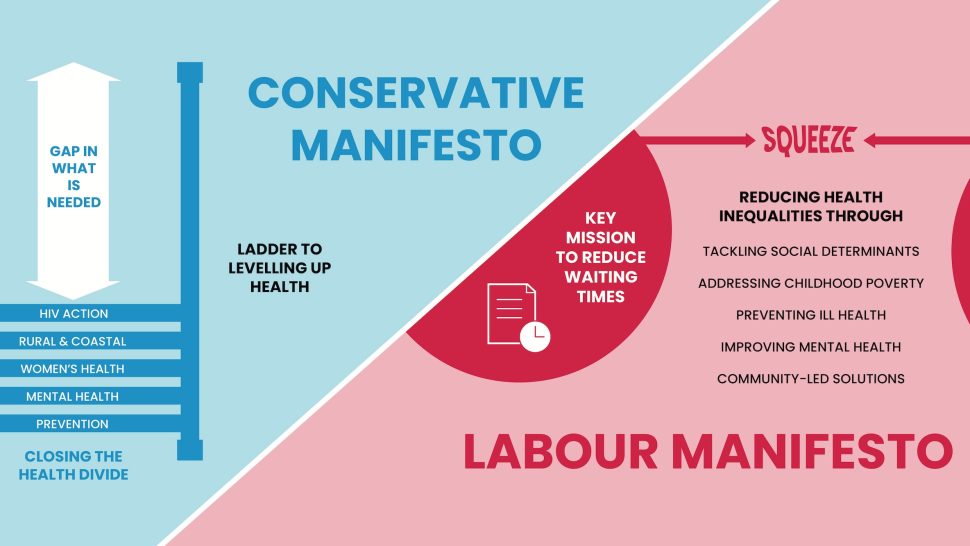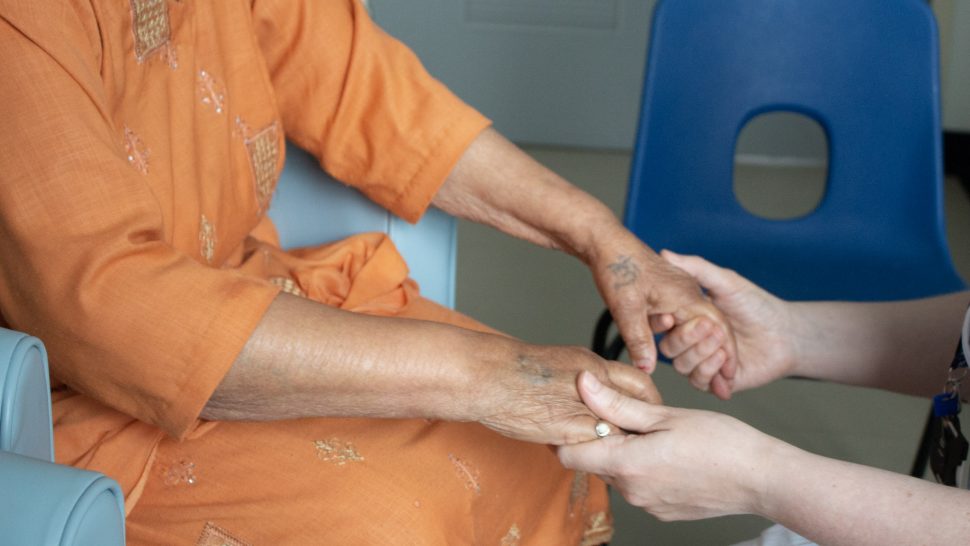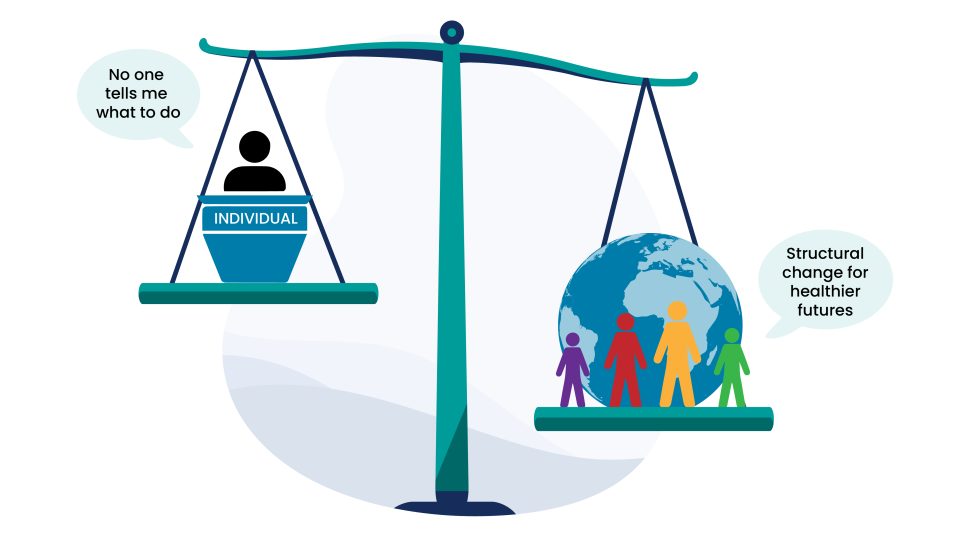
Good intentions, risks and missed opportunities: What the NHS plan means for health and care inequalities
In the 10 Year Health Plan there are notable wins for health inequalities advocates, especially in funding and tackling smoking and obesity, but there are risks of inadvertently increasing inequalities in use of digital tools and widening clinical variation. There are also missed opportunities to work cross-government, provide culturally competent care, and leverage the vast resources of the health and care system to help the poorest areas.

The 10-Year Health Plan: Seven key messages from the HEEC Citizen Panel
As the NHS looks ahead to the next decade, what truly matters to the people who rely on it every day? This blog shares reflections from the Health Equity Evidence Centre’s Citizen Panel, offering honest, hopeful perspectives on how the NHS can evolve to meet future challenges with compassion, fairness, and transparency.

GP Contract 2024/25: More Money, Same Problems?
The additional £899m investment in general practice is a welcome step forward, and its positive impact should not be underestimated. The increase in global sum funding is a strong move, reinforcing the importance of capitation as a foundation for an equitable funding system. However, the Carr-Hill formula, which underpins funding allocation, reflects activity rather than need. The additional investment within the current funding streams shows that simply increasing investment without contract reform risks reinforcing existing funding inequalities.

Early intervention, lasting change: Why Sure Start matters
This blog explores the vital role of Sure Start in improving children’s physical health, social functioning, and neurodevelopmental health – support eroded by austerity-driven cuts. It presents findings from the first systematic review of Sure Start’s health impacts, showing how early intervention reduced hospital admissions, childhood obesity, and improved school readiness. The evidence is clear: restoring Sure Start is key to tackling health inequities and giving every child a fair start in life.

Private health care: the emerging two-tier system
This blog explores the rise of private health care in the UK and its impact on creating a two-tier system. It highlights regional disparities in access to orthopaedic procedures and discusses the implications for patients, the NHS, and policymakers.

Understanding the Index of Multiple Deprivation (IMD) in public health research
The Index of Multiple Deprivation (IMD) is a widely used measure in public health research and policymaking relating to health inequalities. By identifying areas with the greatest levels of deprivation, resources can be allocated more effectively to tackle systemic issues that contribute to unequal health outcomes. This blog provides an overview of the IMD and it’s use in public health research.

Expansion of our Living Evidence Maps
We’re delighted to say that we are expanding our Living Evidence Maps. Until recently, the maps have only included systematic reviews and umbrella reviews. However, we have now mapped the available research from primary studies and included these too. We already have over 480 systematic and umbrella reviews and have now added more than 570 […]

Ripple Effects: Reclaiming Our Stories
In this blog, Chris Frederick, a Lived Experience Advisor, explores how his life has been shaped by the intergenerational and historical trauma experienced by his family and within black communities. In honour of Black History Month, Chris traces the connections between the Windrush Generation, the Brixton riots, and the rise of Black mental health advocacy in the 21st century, highlighting the ongoing work of black communities to address health inequalities and tackle mental health stigma.

“The more we know about ourselves the more we can grow as a people”
In this blog, Sharon Cumberbatch, an NHS nurse, shares her life story as a first-generation black British Caribbean, a health care trainee and a health care professional. In honour of Black History Month, Sharon reflects on the aspirations that have driven her in life, her experiences of systemic racism but also experiences of solidarity. She highlights the importance of learning – about the world but also about our own and others’ histories – as the cornerstone of caring communities.

Feeding two birds with one scone: Leveraging NHS anchor activity to reduce health inequalities and contribute to thriving communities
Discussions around population health and economic growth and their interconnectedness have intensified since the new government came to power. Parliament and cabinet members highlight the importance of cutting NHS waiting times and optimising prevention programmes to enable people to stay healthy and economically active. What seems to be less discussed – at least for now – is how the fundamental drivers of poor health and health inequalities will be tackled and to what extent the NHS can contribute to this goal.

A new tool to help ICBs allocate general practice funding more equitably – introducing eFIT
In this blog, we introduce eFIT, a tool that helps Integrated Care Boards (ICBs) allocate funding more equitably by considering socio-economic factors. By addressing inequalities in general practice funding, eFIT aims to provide additional resources to practices serving disadvantaged communities, working towards fairer health care outcomes for all.

Harnessing Health Impact Assessments for a fairer and healthier future
A healthy population is key to citizen wellbeing, a productive economy and manageable public services. Policy decisions on jobs, income, housing, education, transport and green space have a major impact on health, but do not involve the Department of Health and Social Care. As the government sets out policies to deliver on its manifesto commitments, how can we ensure health is considered across government, mitigating the potential adverse impacts, ensuring equity and accentuating the positives? Here we argue that Health Impact Assessments are a key tool to cross-government action on health and health inequalities.

Why political parties need to address health inequalities before the elections
The NHS is one of the key issues which will decide how the electorate votes in the UK general election this July. [1] Political parties are signalling that they share this concern with pledges for reducing waiting times, improving healthcare through technology and innovation, and increasing workforce and capacity. In parallel, major public health charities, […]

How do the Conservative and Labour manifestos measure up in terms of health inequalities?
The manifestos have been published, but what are they likely to mean for health and care inequalities? Let’s take a closer look and examine the underlying evidence.

What works to tackle ethnic inequalities through anti-racist interventions
BMJ Open has recently published an in-depth review examining anti-racist interventions to address ethnic inequalities in healthcare. In this blog, two of the review’s authors reflect on what this means for primary care.

The path to recovery: The crucial role of my GP in overcoming schizophrenia post brain haemorrhage
In this blog, a member of our Citizens’ Panel highlights the pivotal role of a dedicated GP in guiding their recovery from a life-changing condition. They emphasise the transformative impact of compassionate healthcare and support in navigating both physical and mental health challenges.

Improving health is a political choice but how do we make it a shared political goal?
It was striking to read the devastating results of the last fifteen years of austerity policies on the future of the NHS in the recent BMJ Commission, all within less than nine pages [1]. The numbers are telling; declining life expectancy, deteriorating physical and mental health of young children, and increasing infant and child deaths disproportionately […]

Navigating self-referrals to mental health services
In this blog, one of our Citizen Panel members reflects on their experience of using self-referral for seeking mental health care.

Welcome to the Health Equity Evidence Centre
Despite decades of evidence about health and care inequalities, there has been little progress in addressing them. Stand-out successes in the UK include the cross-government strategy on health inequalities in the 2000s which reduced the gap in life expectancy and infant mortality and the roll out of the COVID-19 vaccinations across minority ethnic groups. A fundamental reason why […]
